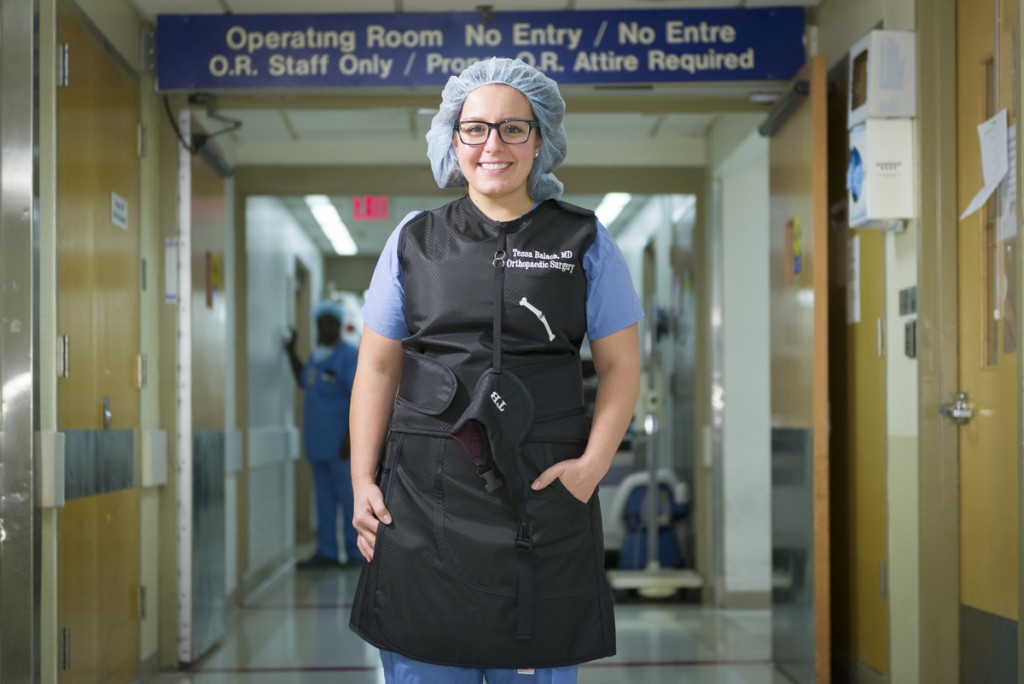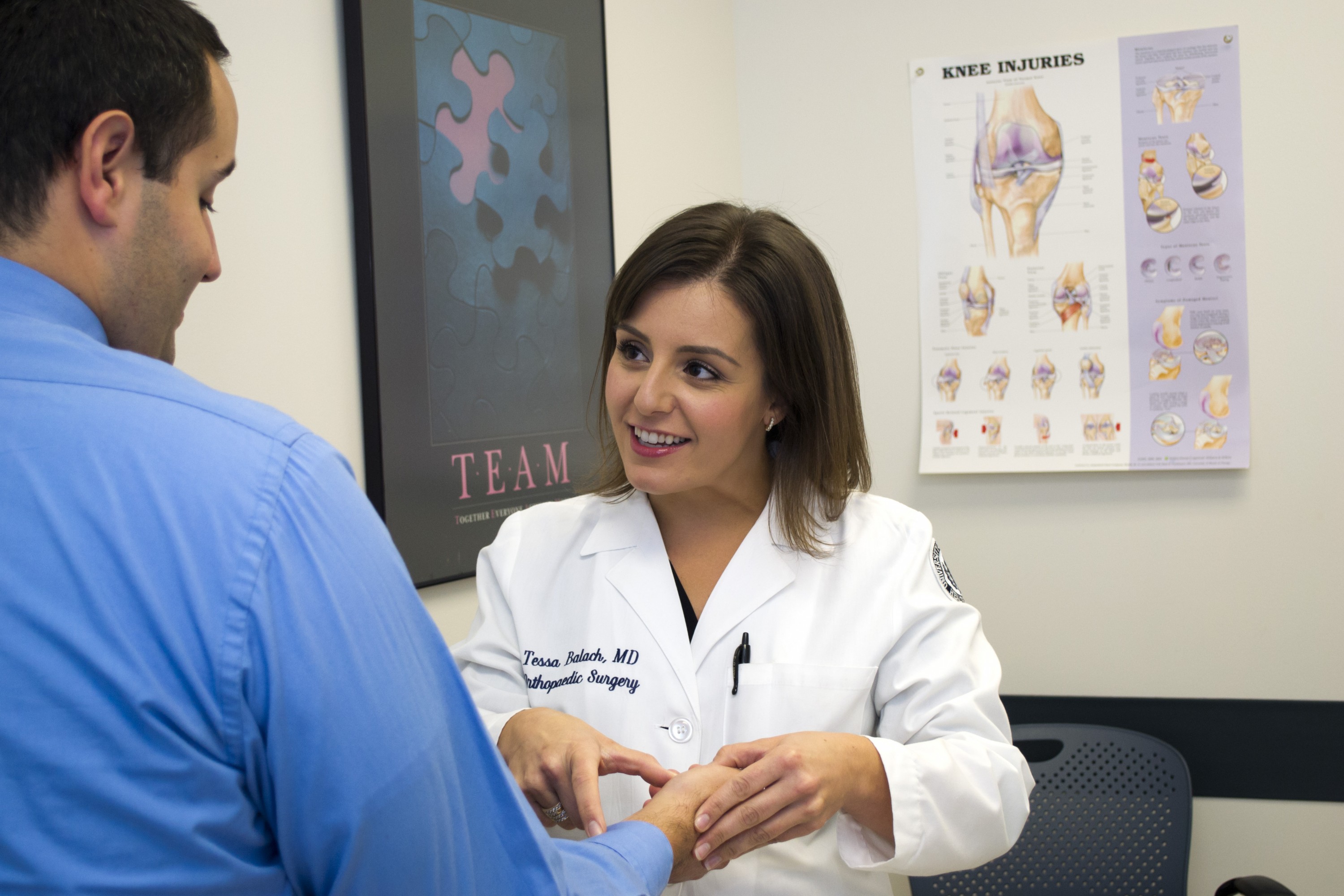As a youngster, Tessa Balach liked working with tools.
“I grew up with a dad who always fixed things in the house and I was his assistant,” she says.
Fast forward a few years to the University of Chicago where she was a student and worked as an athletic trainer, learning about the field of orthopedic medicine from the team physician, an orthopedic surgeon, and an orthopedic fellow.
“That was how I discovered orthopedic surgery and found my interest in it,” Dr. Balach recalls. When she learned that orthopedics involved the very same tools she’d been so comfortable using growing up, that “made the fit all the more perfect,” she adds.
She would go on to earn her medical degree from New York Medical College and complete an orthopedic surgery residency where she also learned more about oncology, soon pursuing an oncology fellowship at University of Chicago Hospitals. In 2011, she was hired as an assistant professor of orthopaedic surgery at UConn Health.

One of only a handful of orthopedic oncologists practicing in Connecticut, Balach practices as an orthopaedic surgeon at the UConn Musculoskeletal Institute and UConn Health’s Surgery Center and John Dempsey Hospital in Farmington, her primary location. She is also on the medical staff of Hartford Hospital, and sees Hartford HealthCare Cancer Institute (HCCI) patients there as well as Connecticut Children’s Medical Center.
She especially appreciates the diversity of cases in this field that treats patients for conditions ranging from benign tumors such as lipomas, to the rare, malignant primary bone sarcomas such as osteosarcomas, which most often strike teens and young adults; there are about 1,000 new cases annually in the U.S.
Balach also treats metastatic bone disease, typically from the breast, lung, prostate, and kidney; it can weaken bones, resulting in fracture. Her role is to identify and treat those bones susceptible to breaks, often by inserting a rod into a bone to help stabilize it.
“These are people who really need your help,” she says, noting there is greater emphasis on limb viability and newer medications that improve bone strength.
“Patients often are under the care of several physicians and benefit from having a care team that works and communicates well to ensure they are getting the high quality we expect,” said Balach, who works collaboratively with many HHCCI staff members including medical and radiation oncologists.
She is also taking part in a prospective, blinded, randomized multi-institutional clinical trial through UConn that is looking at the appropriate duration of post-operative antibiotics for patients treated with limb salvage surgery using complex reconstruction techniques. This study, which she says may be the first of its kind, aims to reduce infection rates in these high-risk patients.
A surgeon with much of her care focused on cancer patients, Tessa Balach is still using tools, now with the goal of helping her patients achieve an improved quality of life. A perfect fit.


